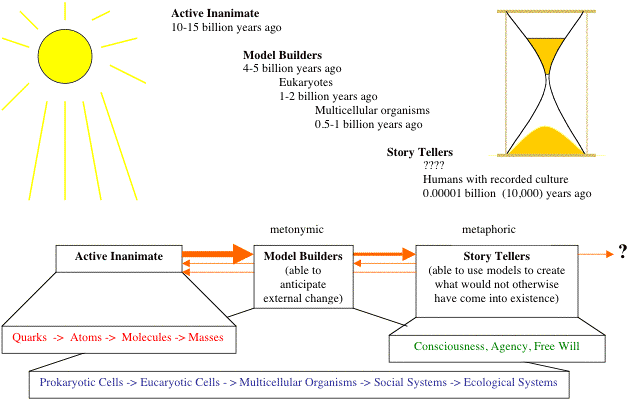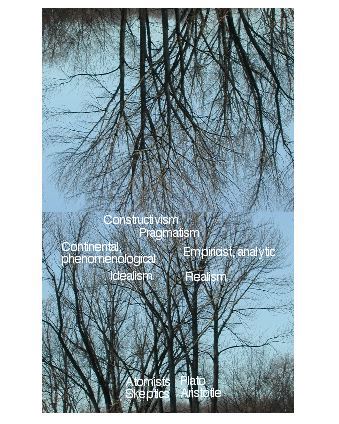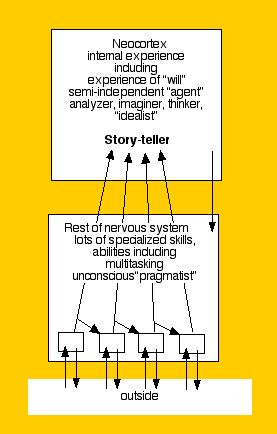Some Thoughts on Similarities Between Brain Function and Morphogenesis, and Their Significance for Research Methology and Biological Theory (1988)
getting it less wrong, the brain's way, (2003) bipartite brain, (2005) science as story telling (2005) generativity (beyond deconstructionism/postmodernism), 2005-6 |

With thanks to Michael Krausz (among others):
| a deflationary (no appeal to "Truth", "Reality"), non-foundationalist (no presumption that there is a characterizable starting point), pragmatic ("puzzle solving"), non-deterministic, non-terminating, multi-layered, transactionalist perspectivism (no preferred reference frame, new things result from comparing views from different reference frames) that might encourage compassion/social justice but starts with neither |



